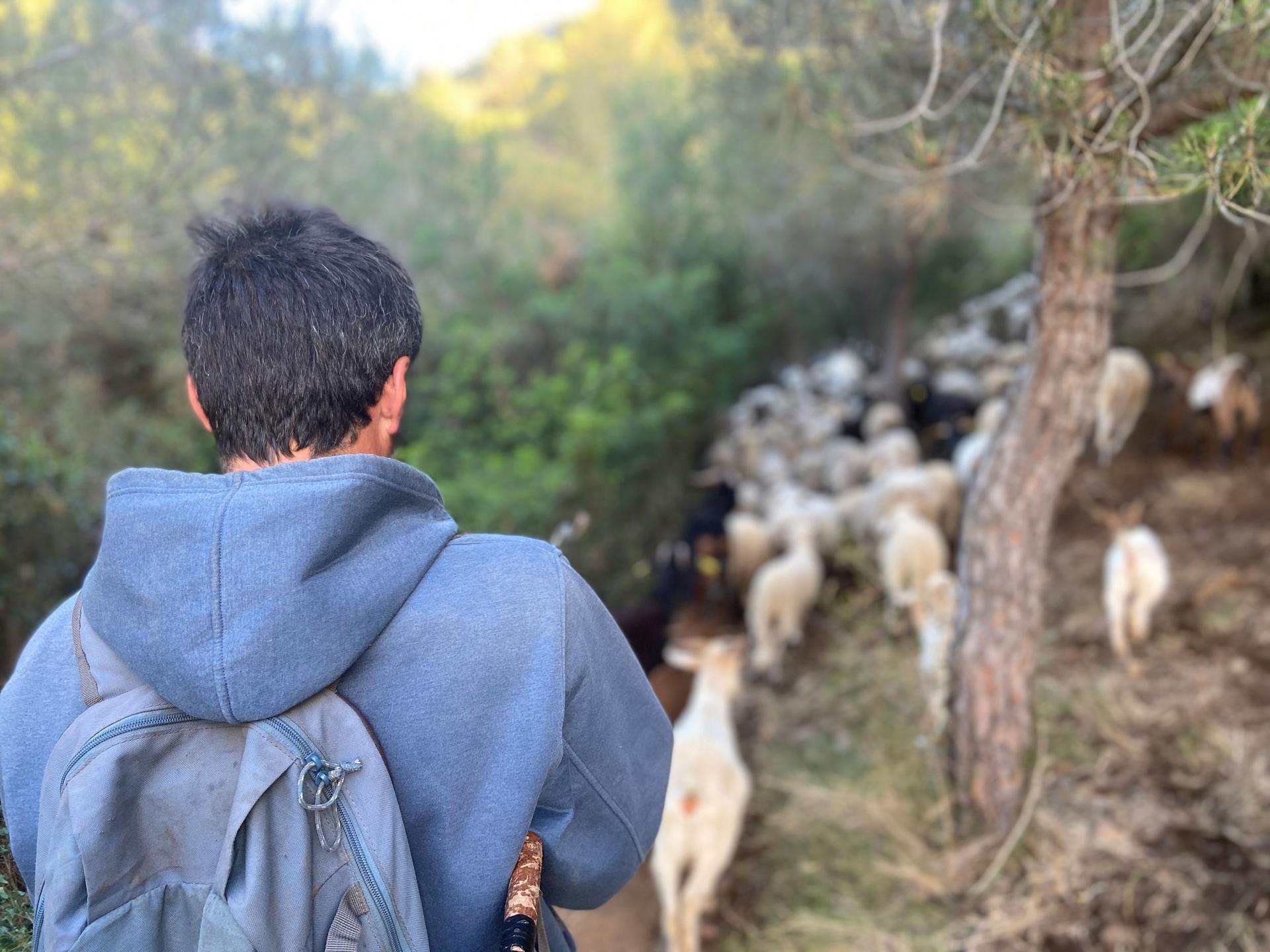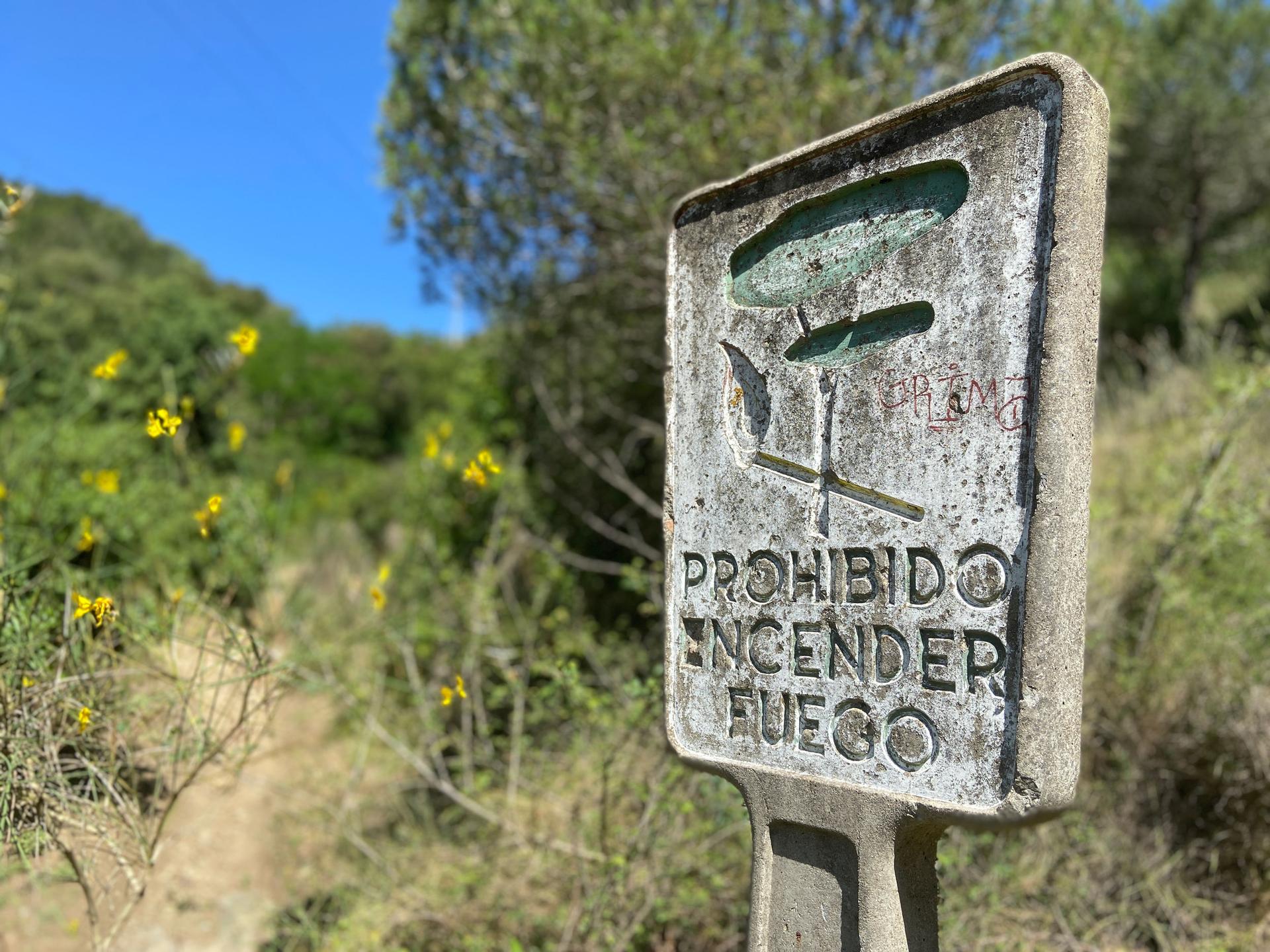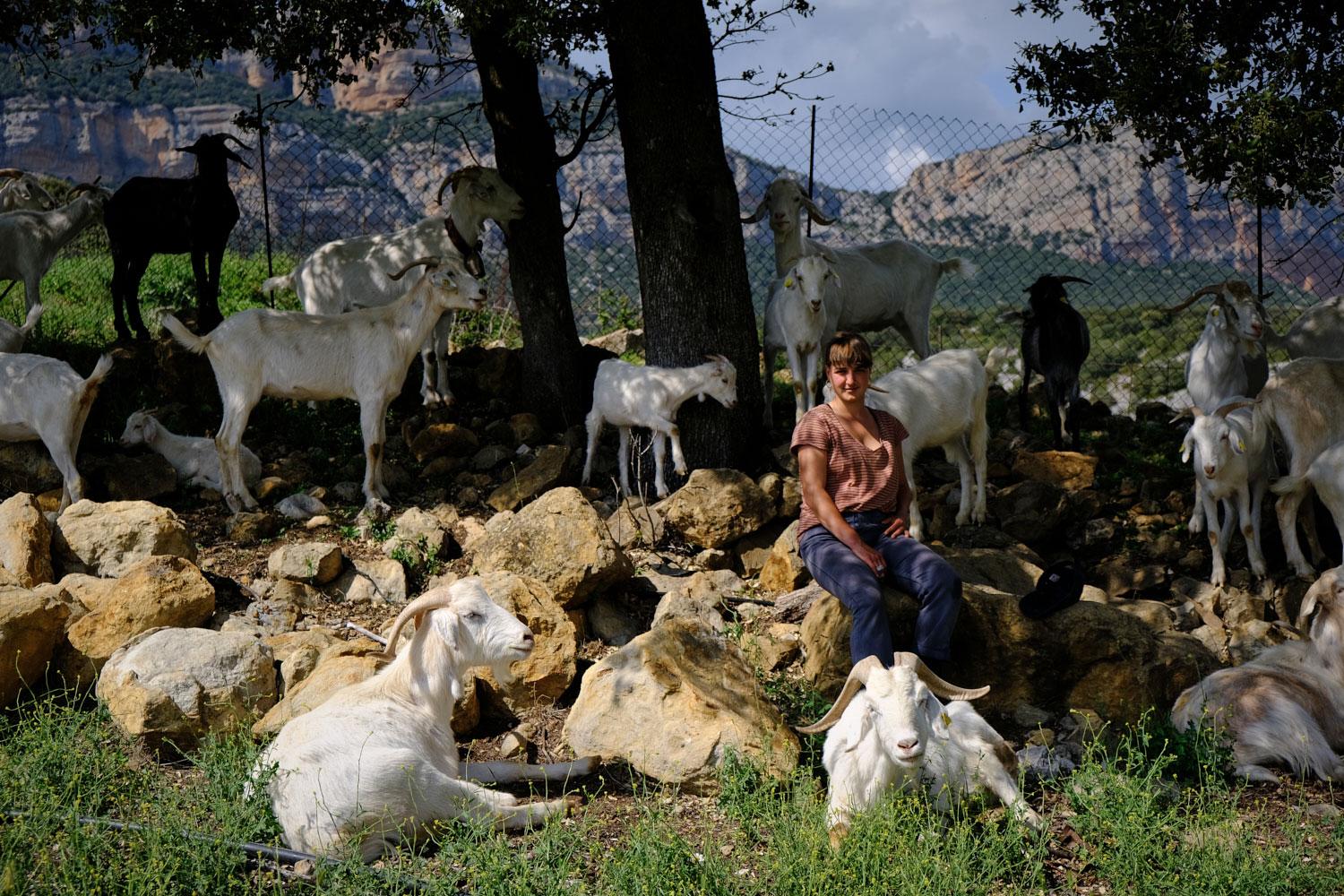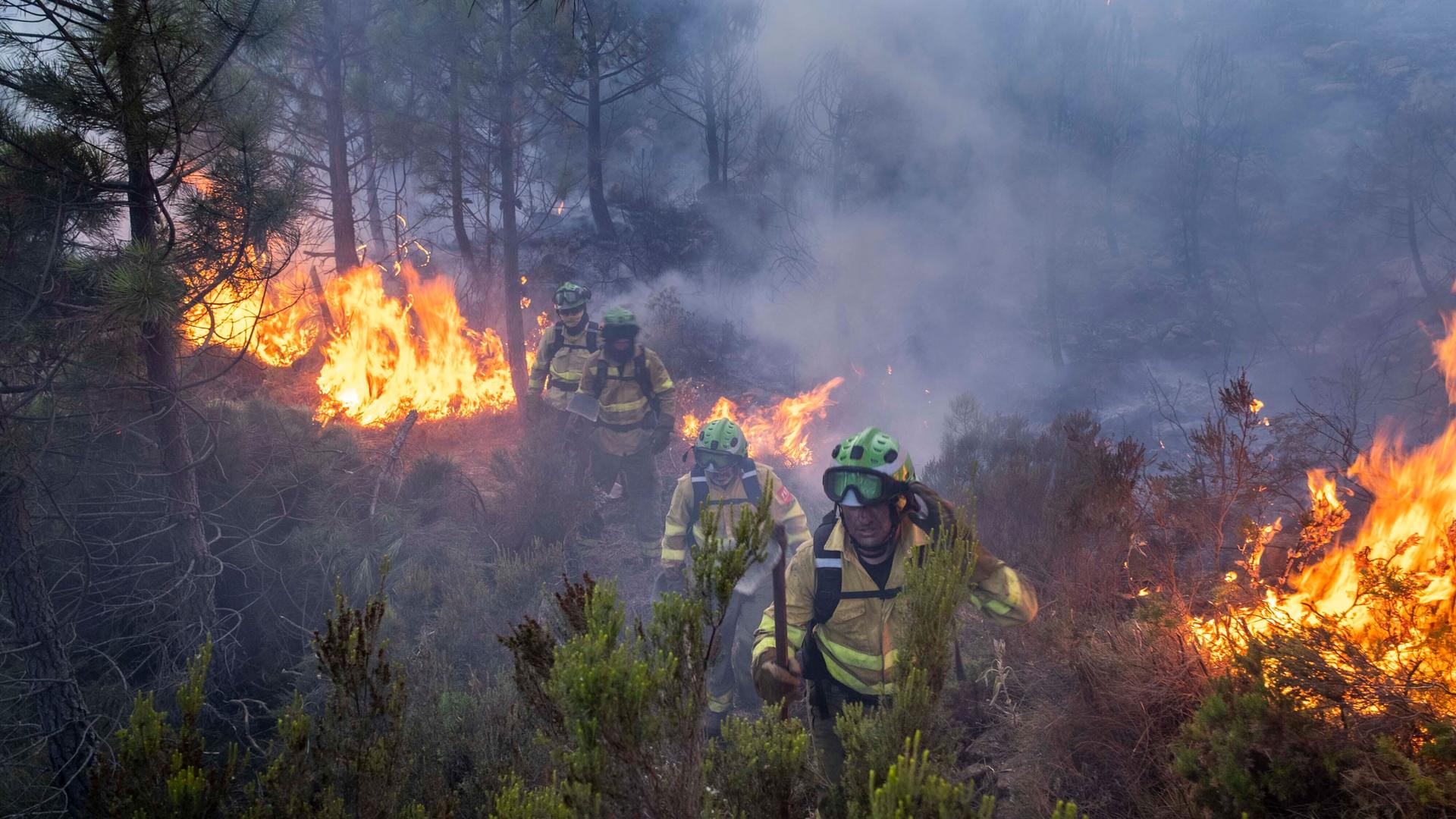‘Fire flocks’ of sheep and goats get deployed to help battle forest fires in Spain
As summer nears in Europe, firefighters in Spain are gearing up to battle forest fires.
On a recent day, men armed with gas-powered weed-whackers were working the perimeter of Barcelona, a city hemmed in by the sea on one side and, inland, by a huge forest called Collserola Park.
Here, where the city meets nature’s edge, it’s crucial to keep the area clean in order to prevent forest fires. Shepherds are now being trained to start “fire flocks,” herds of sheep and goats that graze at the edge of forests to prevent wildfires from spreading to populated areas.
Related: Barcelona is one of Europe’s loudest cities. It’s trying to turn down the volume.
Weed-whacking worker Richard Verdum laughed at the idea. “If you bring in sheep and goats, they’ll eat everything within reach. All the vegetation will die,” he said.
But experts say that’s not exactly right. Ferran Paunè, a University of Vic ecology professor, explained that unchecked forest growth has thrown Spain’s countryside out of balance and goats and sheep — natural ruminants, or grazers — can help.
“As a society we look at a forest as a very good thing. … But for our countries, it is a big problem, because there are few wild animals in the woods.”
“As a society we look at a forest as a very good thing,” he said. “But for our countries, it is a big problem, because there are few wild animals in the woods,” he said — and virtually none that graze.
“You recover vegetation, but not fauna. If you do not have herbivores, you have fire,” Paunè said.
Four flocks of sheep and goats are now working the hills above Barcelona.
Dani Sanchez, 35, said his so-called “fire flock” tidies up the forest better than any machine.
“My sheep and goats are firefighters. … They’re our firewall.”

“My sheep and goats are firefighters,” he said with pride. “They’re our firewall.”
Sanchez leads his 130 animals through a stand of pines just yards from Barcelona’s outermost road — within earshot of the weed whackers.
Vast strips of forest floor look like they’ve been mowed over the last two months.
Sanchez’s fire flock is part of a pilot program run by Paunè, the ecologist, and the Catalan government.
If all goes to plan, they’ll provide the entire Catalan region with flocks, from the Ebro Delta to the south, all the way to the French border.
“We need even more flocks out here grazing,” Sanchez said.

‘This isn’t sustainable’
Hotter, dryer days due to climate change and neglect in keeping forests clean are two main reasons behind the increasing intensity of the fires.
Last year, in the Catalonia region of Spain, there were a record 51 blazes in July alone.
One of last summer’s worst fires swept through the mountains about an hour away from Barcelona. Overnight, a 30-foot-high wall of flames incinerated about 7,400 acres of dense, overgrown wilderness.
Planes and helicopters dumped water as local farmers bulldozed crops, making a protective fire-cut around the town of Santa Coloma de Queralt. Their actions likely saved the village.
Related: Residents remember their losses as they rebuild from La Palma’s volcanic eruption
The next day, fire inspector David Borrell said that it’d be much more affordable to pay people to return to the countryside — to become its custodians again — compared to spending millions in fighting these ever-bigger and more frequent fires, or having to rebuild afterward.
“This isn’t sustainable,” he said.
Spain’s forests have grown large as people abandon the countryside for cities.
“Having a mix of farms, forests and grazing lands lets us to break up these large forests.”
Related: Spain vows to help rebuild La Palma after devastating volcano eruption
A new generation of shepherds
Back in Barcelona, Sanchez passes mountain bikers and hikers all day long. Occasionally, he scolds a dog owner for not using a leash.
But mostly, people enjoy the presence of his flocks.
“Ever since the sheep arrived, we’ve been running into each other,” a young jogger said as he ran by. “It’s great. It also gives Barcelona residents a different view on nature.”
But where there are flocks, there must also be shepherds.
As fate would have it, for reasons ranging from COVID-19 to worries over global warming, the job is gaining in popularity — even among younger people.
An hour south of Barcelona, some 20 young people attended shepherding school under a hot June sun.
One class taught how to use flocks to clear land around the suburbs — they call it “precision grazing.” An instructor explained how out-of-control fires can easily sweep through residential areas.
But fire prevention isn’t what pushed 24-year-old Aina Solana to leave behind her life in downtown Barcelona, where she’d been a dancer and student.
“I remember one day walking the streets of Barcelona,” she said. “Looking around, I said to myself, I don’t see beauty here.”
Related: Foragers in Catalonia embrace a new mushroom-hunting season after last year’s strict lockdown

Last year, Solana moved to her ancestral home, high in the Pyrenees, where her grandparents had been shepherds.
She decided to follow their path.
“In Barcelona, I didn’t even know what I was eating or where it came from. Now that I’ve returned to the country, I know that my eggs come from my neighbor. It gives me peace of mind.”
“In Barcelona,” she said, “I didn’t even know what I was eating or where it came from. Now that I’ve returned to the country, I know that my eggs come from my neighbor. It gives me peace of mind.”
Solana and her classmates are nearly finished with their studies.
Afterwards, they could choose a solitary life in the mountains, or join a cheesemaking co-op.
But the shepherding gig with the most openings? Leading a so-called fire flock.
Because the rate of forest fires is only likely to increase.
